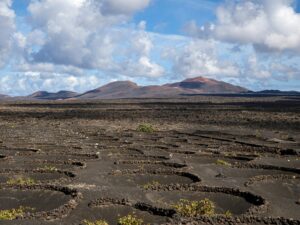Unlocking the mystery behind Lanzarote
Lanzarote, one of the stunning Canary Islands, is often referred to as the ‘Island of Fire.’ This intriguing nickname isn’t just a catchy marketing slogan; it encapsulates the island’s fiery volcanic history and dramatic landscapes. Let’s delve into why Lanzarote is known as the ‘Island of Fire’ and explore the unique features that make it such a captivating destination.
The Fiery Origins
Lanzarote’s nickname is rooted in its volcanic origins. Around 15 million years ago, volcanic activity formed the Canary Islands, including Lanzarote. This island is essentially a product of fire, shaped by numerous volcanic eruptions over millions of years. The most significant of these eruptions occurred between 1730 and 1736, transforming the island’s landscape dramatically.
The Timanfaya Eruptions
The Timanfaya National Park, located in the southwest of Lanzarote, is the heart of the island’s volcanic activity. The park covers around 51 square kilometers and is a living testament to the island’s fiery past. The eruptions that occurred here in the 18th century were some of the most powerful and long-lasting in history. For six years, lava flowed relentlessly, creating the otherworldly landscapes we see today.
Visitors to Timanfaya National Park can witness the power of the ‘Island of Fire’ firsthand. Geothermal demonstrations showcase the intense heat still present beneath the surface, where temperatures just a few meters below ground can reach 400°C (752°F). Guides pour water into holes in the ground, which instantly erupts into steam, and hay placed in crevices bursts into flames, illustrating the residual volcanic activity.
The Lunar Landscape
One of the most striking features of Lanzarote is its lunar-like landscape. The island’s volcanic history has created a terrain that seems almost extraterrestrial. Black and red lava fields stretch as far as the eye can see, interspersed with craters and volcanic cones. This surreal scenery is a stark reminder of the island’s turbulent geological past.
La Geria: Vineyards on Lava
Lanzarote’s unique landscape has also given rise to innovative agricultural practices. In the region of La Geria, local farmers have ingeniously adapted to the volcanic environment by cultivating vineyards on the lava fields. They dig pits in the volcanic ash and plant grapevines at the bottom, protecting them from the harsh winds with semi-circular stone walls. This method not only produces some exceptional wines but also adds to the island’s otherworldly beauty.
Visitors can tour these vineyards and sample the distinctive wines produced here, such as Malvasía Volcánica, which has a unique flavor profile thanks to the volcanic soil. The combination of Lanzarote’s fiery history and human ingenuity has created a landscape and culture that are truly unique.
The Art and Influence of César Manrique
The late César Manrique, a renowned Lanzarote-born artist and architect, played a pivotal role in preserving and promoting the island’s volcanic heritage. His influence is evident across Lanzarote, where he integrated art, architecture, and nature in harmony.
Jameos del Agua and Cueva de los Verdes
Two of Manrique’s most famous works are Jameos del Agua and Cueva de los Verdes, both of which highlight Lanzarote’s volcanic features. Jameos del Agua is a series of lava caves transformed into a cultural center, complete with an underground lake, a concert hall, and a restaurant. The integration of natural volcanic formations with Manrique’s artistic vision creates a mesmerizing experience for visitors.
Cueva de los Verdes, another volcanic tunnel, offers guided tours that delve deep into the island’s geological history. The cave’s natural acoustics and stunning formations make it a must-visit destination for anyone interested in Lanzarote’s fiery origins.
Mirador del Río
Perched on a cliff in the northern part of the island, Mirador del Río is another of Manrique’s masterpieces. This viewpoint offers breathtaking panoramic views of the surrounding volcanic landscape and the nearby island of La Graciosa. The building itself is seamlessly integrated into the rock, showcasing Manrique’s dedication to preserving Lanzarote’s natural beauty.
Fire and Festivities
Lanzarote’s connection to fire isn’t limited to its geological history; it also plays a significant role in the island’s cultural and festive life. One of the most notable celebrations is the annual San Juan Festival, held on June 24th. This festival, which marks the summer solstice, features bonfires, fireworks, and traditional music and dance, celebrating fire as a symbol of purification and renewal.
The Ironman Lanzarote
For those seeking adventure and challenge, the Ironman Lanzarote is a world-renowned triathlon that takes place annually. Athletes from around the globe come to test their endurance against the island’s rugged terrain and fierce climate. The race course, which winds through Lanzarote’s volcanic landscapes, adds an extra layer of intensity to this already grueling event.
Lanzarote’s moniker as the ‘Island of Fire’ is well-deserved, given its dramatic volcanic history and landscape. From the still-active geothermal features of Timanfaya National Park to the innovative agricultural practices in La Geria, the island’s fiery past continues to shape its present. The influence of visionary artist César Manrique further enhances Lanzarote’s unique charm, blending natural beauty with cultural heritage.
Whether you’re exploring the surreal lava fields, sipping wine in a volcanic vineyard, or marveling at the artistic wonders of Manrique, Lanzarote offers a truly unforgettable experience.
4o
